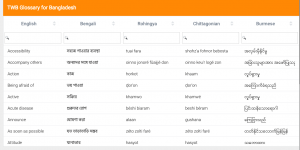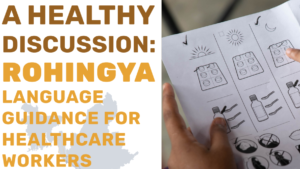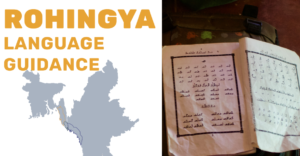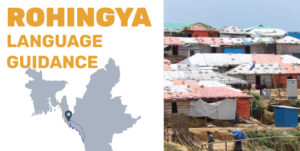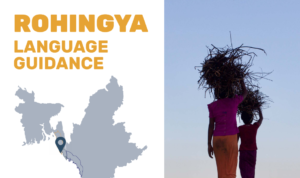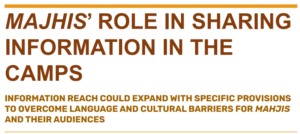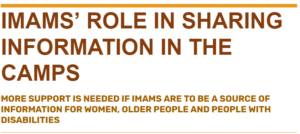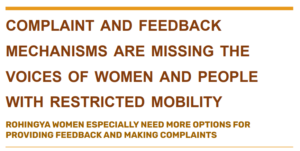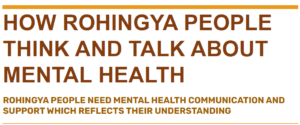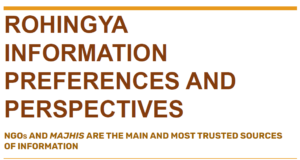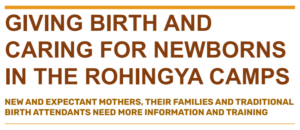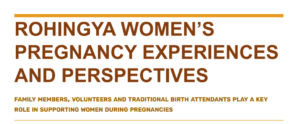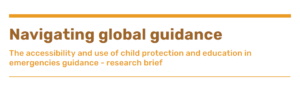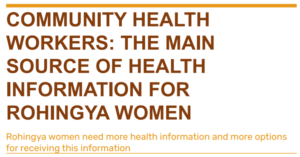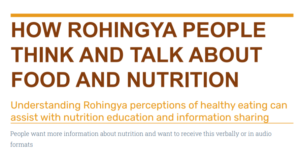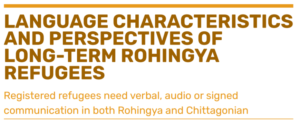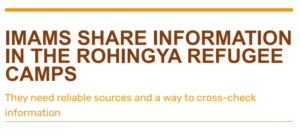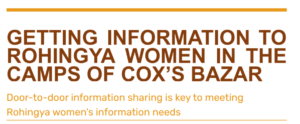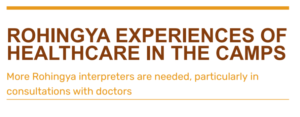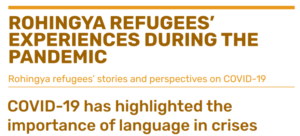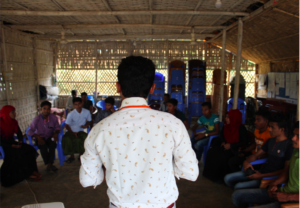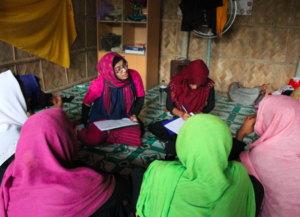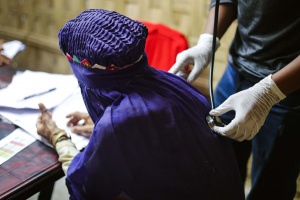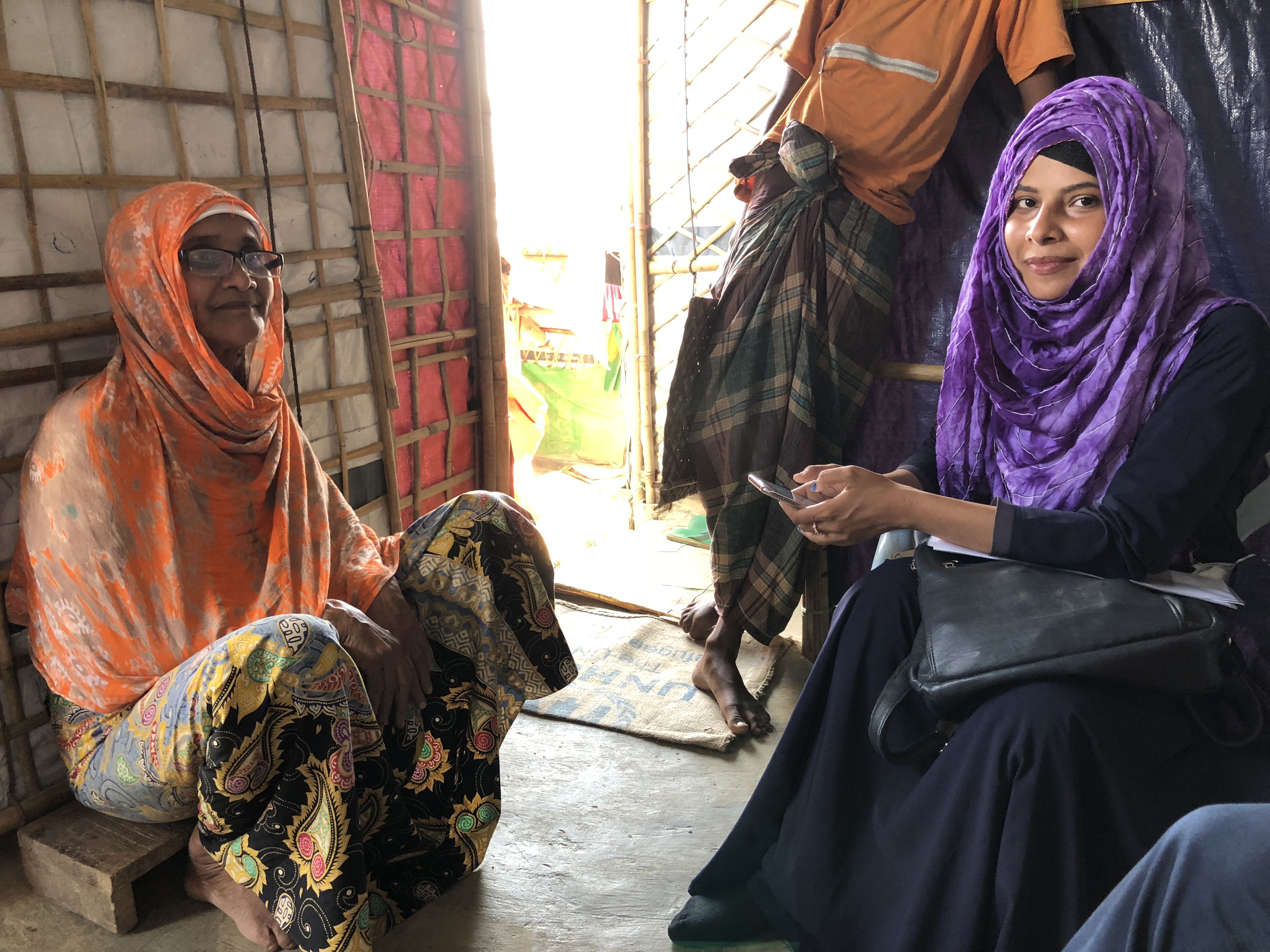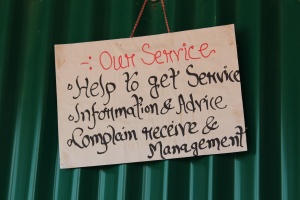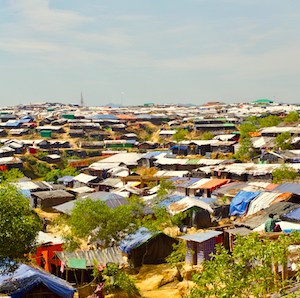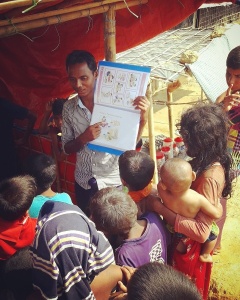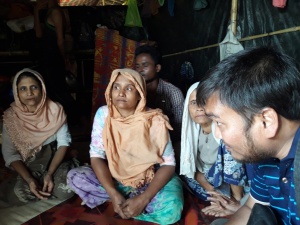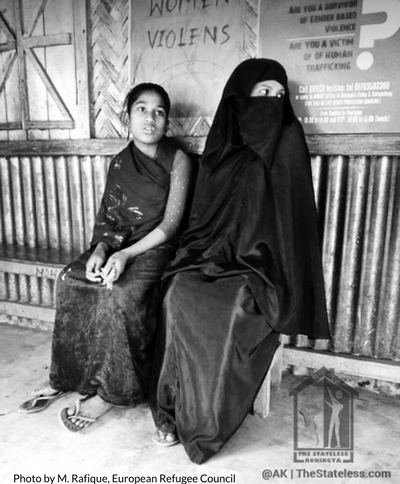Over 600,000 Rohingya people have fled Myanmar to Bangladesh, many of them entire families – families broken by violence. This is a complex political and humanitarian crisis, and one of the most difficult language contexts Translators without Borders has ever experienced. There is almost no translation capacity in Rohingya so communication between responding aid organizations and vulnerable people in the refugee camps is extremely difficult. Furthermore, illiteracy levels among the affected population are high. A team from TWB has been deployed to Cox's Bazar Bangladesh to develop language capacity and resources in the language and format that people can understand. Follow our team's journey as they document what it takes to respond in our most challenging response yet.
Read the latest updates from Cox's Bazar
See all of our latest What Matters? Humanitarian Feedback Bulletins here.
Access to health care and health information is a fundamental human right. However, getting information to the women living in Rohingya camps is a daily challenge for humanitarians in Cox’s Bazar. Due to restricted mobility, particularly stemming from cultural and safety concerns, many women rarely leave their homes to seek or share information. This study explores a group of Rohingya women’s perspectives and experiences of receiving health information at home and their experiences of visiting health facilities in the camps. Learn more.
Rohingya people’s beliefs surrounding the nutritional value of foods often differ from Western nutritional scientific perspectives. Rohingya people generally talk about nutrition in terms of how foods impact particular organs or bodily functions. This report outlines key findings from interviews conducted with the Cox's Bazar camp residents about their food habits and perspectives on the nutritional values of common food items. Learn more.
The Kutupalong and Nayapara registered refugee camps in Cox’s Bazar are home to over 30,000 registered Rohingya refugees, many of which came in the early 1990s. . After decades in Bangladesh, the language characteristics of these Rohingya refugees have changed. Understanding these changes is important for determining how service providers can best meet their needs, as well as understand possible future needs of recently arrived refugees. Learn more.
In the refugee camps of Cox’s Bazar, imams play a central role in the community. They share information on various topics outside of religious teachings, such as COVID-19 and repatriation, and are regularly approached by community members seeking information and advice. To explore imams' role as sharers of information, TWB interviewed a small group of imams working in the camps. Learn more.
Despite making up more than half of the population of the camps, Rohingya women have much less access to information than Rohingya men. Compared with Rohingya men, Rohingya women have less telephone and internet access, fewer sources of information, and fewer opportunities to seek out information. This report outlines key findings from interviews with Rohingya men and women about their information needs and experiences. Learn more.
Every day, thousands of Rohingya refugees visit health facilities in the refugee camps of Cox’s Bazar. In healthcare settings, communication is key - effective two-way communication between health staff and patients is integral to ensuring that patients receive the care they need. To explore Rohingya refugees' experiences of attending health facilities in the camps, TWB interviewed twelve camp residents. Learn more.
The COVID-19 pandemic has had an unprecedented impact on the lives of people and communities, including those already dealing with crises — like the Rohingya refugee community in Bangladesh. Our research report highlights the community's COVID-19 information needs and gaps, and illustrates the strength and resilience of the community during this difficult time. Learn more.
In the refugee camps in Ukhiya or Teknaf, you will hear the term majhi a lot; their appointed role is the sharing of official information, with some assuming a leadership role, too. Research by Translators without Borders shows, however, that the effectiveness of majhis as Rohingya leaders and communicators is still constrained by a lack of language resources. Learn more.
Knowing what terminology Rohingya refugees use to discuss COVID-19 is critical if responders are to understand and respond to the refugees’ questions and concerns. To assist humanitarians in minimizing confusion, Translators without Borders has developed Rohingya translations of terms used in the COVID-19 response.
Learn more.
Refugees have a right to information and two-way communication in their own language, in a format they understand, and through channels they prefer and trust. Translators without Borders (TWB) surveyed a representative sample of refugees to better understand their language and information needs. Here is what we found.
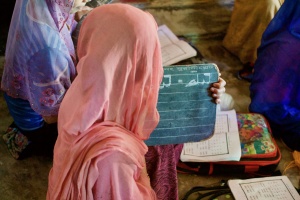
New language guidance to promote women’s rights in Rohingya refugee camps
3 October - Updated glossary supports response with gender-focused language advice
Translators without Borders (TWB), in collaboration with Oxfam International and CARE International, is launching new gender-focused language guidance for the Rohingya refugee crisis. This language support, which is provided in the TWB Glossary for Bangladesh app, gives refugees, aid workers, and interpreters a well-researched tool to communicate more effectively with Rohingya women...... Read more.
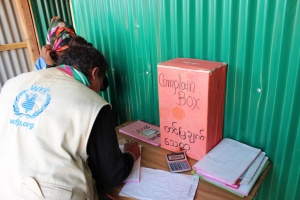
Hefazot transforms to nirapotta; janela becomes kirkiri
24 August - One year into the Rohingya refugee response, a language evolves with its people.
Language is fluid. It is subject to environment, culture, and the whims of communities. It’s been one year since more than 700,000 Rohingya fled over the border from Myanmar into Bangladesh. And it is here in these cramped refugee camps that a language is shifting and evolving right in front of us..... Read more.
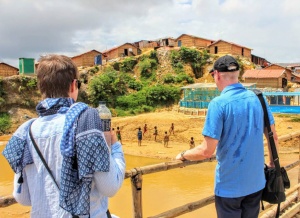
Report from the field
22 August - Our Board Chair visits Bangladesh, sees progress and challenges first hand
I recently visited Bangladesh with Ellie Kemp, our Head of Crisis Response, to see first hand the work of Translators without Borders (TWB) around the Rohingya crisis. Our trip included a visit to the “megacamp” at Kutupalong, the biggest refugee camp in the world, and meetings with our partner humanitarian response teams based in Cox’s Bazar.... Read more.
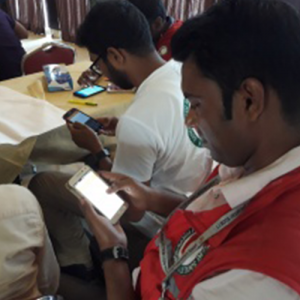
Translators without Borders launches language tool for Rohingya humanitarian response
20 June - New glossary app improves communication between interpreters, aid workers, and Rohingya community in humanitarian response
The TWB Glossary for Bangladesh provides text and audio translations for five languages — Rohingya, English, Bengali, Chittagonian, and Burmese. It contains 180 key terms relevant to the water, sanitation, and hygiene (WASH) sector... Read more.
Language Technology: TWB Blog by Executive Director Aimee Ansari
04 June - Language Technology Could Help 157 Million People Get Access To Information.
I was exhausted. It had been a great week in Bangladesh, but the overload of language, smells, refugee camp, seeing old friends, meeting new friends, government, donors, and all the while pretending like I wasn’t jetlagged, was taking its toll. I just wanted to go to sleep. My last meeting was in Dhaka with someone in the Prime Minister’s office. I had little hope of staying awake through the meeting. And yet, I was captivated...Read more.
Bangladesh Program Update
03 April - Bridging language gaps empowers people to communicate in Cox’s Bazar refugee camps
Rohingya Zuban
22 November - a TWB rapid assessment of language barriers in the Rohingya refugee response.
Bot Towan! #InterpretersMatter
31 Today was a bit grueling. We went to interview people who have newly arrived at Balukhali makeshift camp about cyclone preparation. We did that, and in the process confirmed what I already knew: specific skills are needed to act as a translator or interpreter in a crisis...Read more.
On the ground in Bangladesh. So – how do we communicate?
22 Having arrived in Cox's Bazar Rebecca Petras reports on the complicated situation on the ground, and how the ability to communicate with refugees in their language is a serious issue.
The language complexity in the current Rohingya refugee crisis is deep. I had only a faint understanding of it when I landed a few days ago; I have a slightly better sense now...Read more.
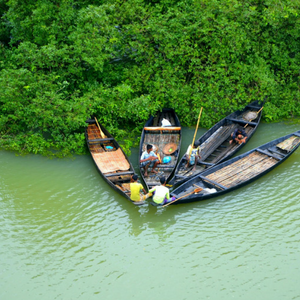
Taking action in the Rohingya crisis: TWB’s biggest language challenge yet
17 - Rebecca Petras travels to Bangladesh to launch the TWB response to the Rohingya refugee crisis.
Your support helps ensure that Rohingya refugees have access to the information they need, in a language and format they understand.
Do you speak/write Rohingya, Chittagong, Burmese or Bangla languages? Register now to help translate vital information from English.
